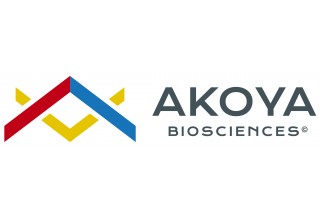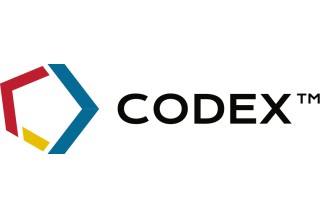Akoya Biosciences Announces Full Enrollment in the CODEX™ Early Access Program for Highly Multiplexed Tissue Analysis

MENLO PARK, Calif., May 30, 2018 (Newswire.com) - Akoya Biosciences today announced that the CODEX™ Early Access Program to provide a comprehensive solution for spatially resolved, highly multiplexed biomarker analysis is fully enrolled and underway. Ten sites purchased the CODEX Early Access Platform, comprised of a fluidics-based instrument, reagents and software analysis suite.
Developed in the lab of Dr. Garry Nolan, Rachford and Carlota A. Harris Professor, Department of Microbiology and Immunology at Stanford University, CODEX technology (CO-Detection by indEXing) affordably converts existing fluorescence microscopes into high-dimensional imaging systems capable of single-cell resolution.
Understanding the spatial relationships and cell-to-cell interactions of developing dysfunctional or exhausted T cells (and other immune cells) is currently the 'dark matter' of immune response.
John Wherry, Director for the Institute of Immunology at the University of Pennsylvania
“The development of the CODEX system in our lab has significantly advanced our and our collaborator’s ability to better understand tissue architecture and its contribution to disease pathology,” said Dr. Nolan. “The availability of CODEX technology through Akoya Biosciences will transform standard histology from interrogating tissues with just a handful of markers at a time to scientists routinely looking at 30 to 50 markers.”
The CODEX technology involves uniquely labeling antibodies with proprietary CODEX barcodes. A single tissue-staining step is applied to either formalin-fixed paraffin-embedded (FFPE) or fresh frozen tissue. Combined panels of Akoya and customer-validated antibodies are typically between 25-50 targets, though larger panels are possible. Akoya's end-to-end software solution enables automated image acquisition, processing and analysis.
“Understanding the spatial relationships and cell-to-cell interactions of developing dysfunctional or exhausted T cells (and other immune cells) is currently the ‘dark matter’ of immune response. Intricate cell-to-cell communications are central to nearly all aspects of immune cell function and development, but we currently know very little about these events in vivo in infections and tumors,” said Professor E. John Wherry, Director for the Institute of Immunology at the University of Pennsylvania. “The CODEX system’s ability to provide in situ high-dimensional spatial analysis of a large number of immune markers provides an exciting new platform to see deeper into these critical immune interactions.”
“We are tremendously excited to provide our early-access partners this transformational advancement in the field of tissue imaging. Early-access adoption of the CODEX technology is an important step in the commercialization of our platform,” said Brian McKelligon, CEO of Akoya. “CODEX is designed as a streamlined end-to-end system, delivering unparalleled scientific value, that integrates with our customer’s existing infrastructure.”
About Akoya Biosciences
Akoya Biosciences develops innovative technologies for life science researchers to enable spatially resolved quantitative tissue phenotyping at the cellular and subcellular level. Our CODEX technology is fueling advances by providing comprehensive solutions including instrumentation, reagents and software. Akoya is in Menlo Park, California.
For more information, please visit https://www.akoyabio.com/category/news/.
Contact: media@akoyabio.com
Source: Akoya Biosciences

